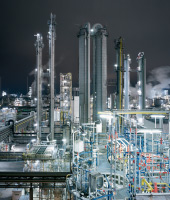Employees
Employee Numbers Rise
WACKER’s workforce increased slightly in 2014. We had 16,703 employees worldwide as of December 31, 2014 (Dec. 31, 2013: 16,009), up 4.3 percent on the prior-year period. The increase is mainly attributable to the acquisition of a majority stake in Siltronic Silicon Wafer Pte. Ltd. in Singapore and to the acquisition of Scil Proteins Production GmbH in Halle, Germany.
Siltronic continued with the organizational merger of the Burghausen and Freiberg sites that commenced in 2013. In Germany, the number of employees at Siltronic was reduced by 112 through intra-Group transfers, phased early retirement and voluntary severance packages.
Number of Employees on December 31, 2014
| Download XLS |
|
|
|
|
||||||||||||
|
|
2014 |
2013 |
2012 |
2011 |
2010 |
2009 |
2008 |
|||||||
|
|
|
|
|
|
|
|
|
|||||||
|
Germany |
12,366 |
12,322 |
12,635 |
12,813 |
12,235 |
11,925 |
12,110 |
|||||||
|
International |
4,337 |
3,687 |
3,657 |
4,355 |
4,079 |
3,693 |
3,812 |
|||||||
|
Group |
16,703 |
16,009 |
16,292 |
17,168 |
16,314 |
15,618 |
15,922 |
|||||||
|
|
|
|
|
|
|
|
|
|||||||
12,366 WACKER employees (74.0 percent) work in Germany and 4,337 employees (26.0 percent) at non-German sites. WACKER also employed 527 temporary workers in the year under review.
Number of Temporary Workers on December 31, 2014
| Download XLS |
|
|
|
|
||||||||||||
|
|
2014 |
2013 |
2012 |
2011 |
2010 |
2009 |
2008 |
|||||||
|
|
|
|
|
|
|
|
|
|||||||
|
Germany |
393 |
286 |
14 |
48 |
374 |
247 |
80 |
|||||||
|
International |
134 |
58 |
77 |
65 |
114 |
53 |
58 |
|||||||
|
Group |
527 |
344 |
91 |
113 |
488 |
300 |
138 |
|||||||
|
|
|
|
|
|
|
|
|
|||||||
As a manufacturing company, WACKER has a large contingent of industrial employees (54.3 percent), about a seventh of whom are women (13.4 percent).
Personnel expenses rose to € 1,246.9 million (2013: € 1,133.0 million), up 10.1 percent from the previous year. These expenses included outlays for social benefits and the company pension plan amounting to € 238.8 million (2013: € 231.7 million). Apart from the higher number of employees and pay-scale increases, the main reasons for the increase were a bonus to mark WACKER’s centennial and the payment of variable compensation.
Personnel Expenses
| Download XLS |
|
|
|
|
||||||||||||
|
€ million |
2014 |
2013 |
2012 |
2011 |
2010 |
2009 |
2008 |
|||||||
|
|
|
|
|
|
|
|
|
|||||||
|
Personnel expenses |
1,246.9 |
1,133.0 |
1,196.8 |
1,282.5 |
1,135.7 |
1,090.3 |
1,086.1 |
|||||||
|
|
|
|
|
|
|
|
|
|||||||
In addition to their fixed base salary (which includes vacation and Christmas bonuses), WACKER employees usually also receive some variable compensation – a voluntary payment to employees on both the standard and above-standard pay scales. It consists of a profit-sharing amount and a personal-performance component. Employees in Germany received no profit-sharing or performance-related payments in 2014 for the 2013 fiscal year in light of the Group’s business performance in that year. The Executive Board and Executive Personnel contributed by forgoing 10 percent of their fixed salaries from March through November 2013. One-half of this solidarity contribution was paid back to Executive Personnel in 2014.
The IG BCE trade union and chemical-industry employers agreed on a new 14-month collective-bargaining agreement in February 2014. The standard pay scale increased by 3.7 percent, and WACKER increased the salaries of above-standard-pay-scale employees by 4 percent.
A WACKER company pension is an important compensation component and is available at most of our German and non-German sites, except for regions where the statutory pension appears sufficient or legal provisions are inadequate. Wacker Chemie AG’s pension fund – Pensionskasse der Wacker Chemie VVaG – provides a company pension to WACKER employees in Germany. The fund has around 17,000 members and provides pension payments to some 7,700 retirees. The average pension paid was around € 630 per month. WACKER pays in up to four times its employees’ annual pension contributions, with the exact amount being determined by the type of agreement. Employees can supplement their company pensions by making their own additional contributions. WACKER matches supplementary contributions as provided for by the collective-bargaining agreement. For the base amount, employees receive a 28-percent match called “Chemieförderung I”; additional contributions receive the 13-percent “Chemieförderung II” match. For salary over and above the pension insurance contribution assessment ceiling, employees in Germany also receive an additional supplementary pension.
High School Student Marketing Is Expanded
In its personnel development activities, WACKER also relies on vocational training. In 2014, 176 young people began their training at WACKER or at the Burghausen Vocational Training Center (BBiW). In total, the company employed 635 trainees, slightly fewer than a year earlier (2013: 664). At 4.9 percent, the percentage of trainees (ratio of trainees to Group employees in Germany) is slightly below the previous year’s level (2013: 5.2 percent). 541 trainees are in scientific and technical disciplines and 94 in business-related fields. In 2014, WACKER offered jobs to the majority of suitable trainees – 162 graduates – hiring 111 of them temporarily and 51 permanently. The BBiW also provides training for 18 partner companies. The public foundation set up by WACKER thus satisfies an intercompany training mandate – in 2014, partner companies sent 58 trainees to start courses at the BBiW.
The BBiW intensified its marketing efforts targeting high school students during the reporting year in response to the decline in applicant numbers resulting from demographic change. The training center thus revamped its website and invested in advertising on public buses. It also invited its trainees to participate in tradeshows and school visits, and provide high school students with first-hand accounts about life on the job.
The high quality of BBiW’s training is evidenced by all the awards won by its trainees. In 2014, 31 trainees completed their training with the highest possible grade, and their excellence was recognized by the Chamber of Industry and Commerce. The Nünchritz site once again produced Saxony’s best chemical technician – for the third time in succession.
WACKER will remain innovative and competitive as long as it has highly-skilled employees, which is why we offer all our employees opportunities for additional training. At least once a year, employees and supervisors discuss development measures during performance reviews. This approach applies to all levels of the corporate hierarchy. In 2014, our employees completed about 74,000 e-learning sessions (2013: about 88,000), and more than 16,400 participants (2013: more than 17,500) attended seminars, advanced training programs and conventions, or received tutoring.
In the reporting year, WACKER completed the first cycle of the talent-management process (launched in 2013), which ended with the Executive Board conference on succession planning. The aim is to identify and encourage talent at an early stage, so that WACKER can fill challenging positions with highly-qualified in-house candidates in the medium and long term. The talent-management process is directed at Executive Personnel and all other employees above the standard pay scale. Employees are discussed according to uniform criteria at conferences held during the annual talent-management cycle. These conferences initially take place within a corporate sector (business division, corporate department or subsidiary), and are subsequently conducted across corporate sectors. At the annual performance review, employees and supervisors discuss the views expressed in the conferences and jointly determine development measures. This groupwide approach allows us to offer employees in small units and at subsidiaries perspectives, too.
Overall, WACKER invested € 7.0 million in personnel-development measures and advanced training in 2014 (2013: € 7.0 million).
Potential Managers Rate WACKER a Top Employer
WACKER is striving to remain competitive in the face of demographic trends. Accordingly, we are intensifying our contacts with graduates in critical disciplines. In 2014, the HR Marketing department further expanded its system of talent relationship management in order to form closer ties with external candidates. We intensified our contacts with students whom we got to know during internships with us and whom we considered suitable candidates for subsequent employment. In the annual survey conducted by the German online recruitment and career guidance specialist ABSOLVENTA, WACKER took third place in the “Employer Quality” category. The over 7,500 interns who participated gave WACKER an average rating of 4.62 on a scale of 1 (dissatisfied) to 5 (very satisfied). The company emerged as the winner in the “Pharmaceutical/Medical Technology/Chemical” category.
Idea Management: Fewer Suggestions, Increased Benefit
Employee ideas help WACKER improve. The number of improvements suggested by our employees fell in 2014 for the first time after four uninterrupted years of increases. In total, we received 7,672 suggestions (2013: 9,159) – roughly 16 percent fewer than in the previous year. The participation rate (number of submitters per 100 employees) fell slightly to 30 percent (2013: 32 percent). Our goal is still for every second employee to contribute ideas. The calculable benefit rose to € 8.3 million (2013: € 7.7 million).
Idea Management
| Download XLS |
|
|
|
|
||||||||||||
|
|
2014 |
2013 |
2012 |
2011 |
2010 |
2009 |
2008 |
|||||||
|
|
|
|
|
|
|
|
|
|||||||
|
Number of improvement suggestions |
7,672 |
9,159 |
8,982 |
8,220 |
7,702 |
5,724 |
5,808 |
|||||||
|
Participation rate (%) |
30 |
32 |
34 |
34 |
33 |
28 |
28 |
|||||||
|
Calculable benefit (€ million) |
8.3 |
7.7 |
4.9 |
7.8 |
10.5 |
11.2 |
13.5 |
|||||||
|
|
|
|
|
|
|
|
|
|||||||
WACKER has been addressing the demographic trend for many years. The average age of the Group’s workforce at the reporting date was 42.6. Employees at non-German sites are younger (average age: 39.5) than in Germany (43.6). The age structure abroad varies greatly from region to region. Staff at Asian sites are comparatively young (average age: 34.6), while staff at US locations have an average age of 47.7. Regional variations in age structure are not exclusive to WACKER; they reflect the age structures of the populations in each continent and country.
Demographic Analysis of German and International Sites in 2014

Health Management Focuses on Back Health
We have set ten strategic goals to maintain our long-term innovative and competitive strength at WACKER. Long-term measures for the workforce range from training opportunities to health programs. In health management, the focus is on five fields. We seek to avoid spinal disorders and cardiovascular diseases in our workforce, increase mental resilience, enable age-appropriate work and find suitable jobs for staff with health restrictions. In 2014, Health Services launched a groupwide initiative aimed at raising awareness about back health among WACKER employees and presenting preventative measures. According to reports issued by health insurers, more than 20 percent of all medical certificates submitted by German employees are for health problems related to the musculoskeletal system. And at WACKER, back problems are the leading cause of sick days.
The “Fit for Your Shift” project launched in 2013 in collaboration with Deutsche Rentenversicherung Süd (the southern regional branch of Germany’s statutory pension insurance system) was turned into a permanent program in 2014. In this health program tailored specifically to shift workers, participants are taught habits that can help them deal better with the pressures of shift work in the long term. The program consists of four modules: a one-week stay at a rehabilitation clinic, a three-month program of training at the workplace, a six-month period during which workers continue the training on their own, and a final refresher weekend. The European Chemical Industry Council (Cefic) bestowed a special commendation on “Fit for Your Shift” as part of the 2014 European Responsible Care Awards.
Since 2012, we have been offering preventive checkups to management-level 3 (“FK3”) employees over 45 years of age at all locations in Germany. In addition to organ examinations, the FK3 checkups also focus on giving employees advice on how to deal better with mental stress situations. The preventive program has been very well received: 87 percent of all eligible managerial employees took part in the checkups during the reporting year.
Construction of the new health center at the main Burghausen site has now been completed. This means we have a modern, efficient infrastructure for providing occupational and acute medical care to about 10,000 employees.
Since 2014, WACKER has been offering its employees options for organizing their working time in a more personalized way than in the past. Employees now have access to a variety of leave options and part-time models for personal situations, such as providing care for family members with serious health conditions, pursuing further education or taking a sabbatical. Unpaid leave can be taken up to a maximum period of two years. The new arrangements are provided for in the “Working Life and Demography” collective-bargaining agreement and offer employees a wide range of options for balancing the demands of their careers and the different stages of their lives.
Good social benefits, competitive compensation and motivating tasks make WACKER an attractive employer. This is demonstrated by the long-term commitment of our employees to our company – the average length of service in Germany (permanent staff) was 18.1 years (2013: 17.3 years). In 2014, the employee turnover rate rose to 4.1 percent groupwide (2013: 3.4 percent), while in Germany it was only 0.8 percent (2013: 0.9 percent). At non-German sites, the rate amounted to 13.8 percent (2013: 11.9 percent).
Employee Turnover Rate
| Download XLS |
|
|
|
|
||||||||||||||||
|
% |
2014 |
2013 |
2012 |
2011 |
20102 |
2009 |
2008 |
|||||||||||
|
|
|
|
|
|
|
|
|
|||||||||||
|
||||||||||||||||||
|
Germany |
0.8 |
0.9 |
0.9 |
0.9 |
0.6 |
0.7 |
0.9 |
|||||||||||
|
International |
13.8 |
11.9 |
30.81 |
8.9 |
8.7 |
8.6 |
9.3 |
|||||||||||
|
Group |
4.1 |
3.4 |
7.9 |
2.9 |
2.5 |
2.5 |
2.9 |
|||||||||||
|
|
|
|
|
|
|
|
|
|||||||||||
A Popular Employer Among Managers
As viewed by its own managerial employees, WACKER was once again one of the most popular chemical-sector employers in Germany in 2014. In the annual satisfaction survey conducted by Germany’s Association of Chemical-Industry Executives (VAA), the association’s members gave WACKER a grade of 3.01 – slightly below the 2013 figure (2.80). On average, the 23 chemical, pharmaceutical and medical-technology companies participating in the survey scored 3.2 on a scale of 1 to 6, where 1 is the highest grade. In terms of its overall ranking, WACKER fell from sixth place in 2013 to twelfth. Experience shows that these results correlate with the company’s financial success.



